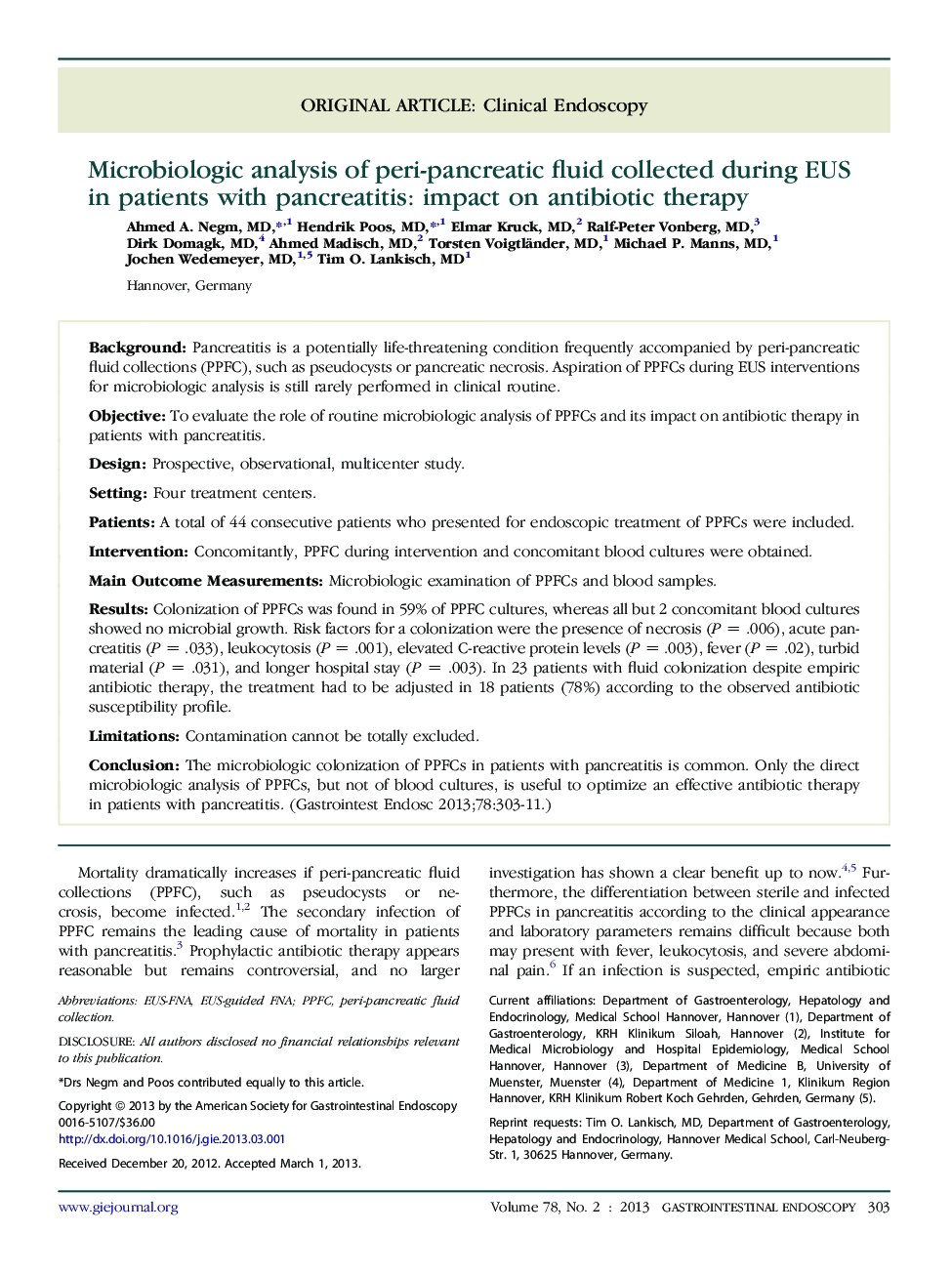| Article ID | Journal | Published Year | Pages | File Type |
|---|---|---|---|---|
| 3303908 | Gastrointestinal Endoscopy | 2013 | 9 Pages |
BackgroundPancreatitis is a potentially life-threatening condition frequently accompanied by peri-pancreatic fluid collections (PPFC), such as pseudocysts or pancreatic necrosis. Aspiration of PPFCs during EUS interventions for microbiologic analysis is still rarely performed in clinical routine.ObjectiveTo evaluate the role of routine microbiologic analysis of PPFCs and its impact on antibiotic therapy in patients with pancreatitis.DesignProspective, observational, multicenter study.SettingFour treatment centers.PatientsA total of 44 consecutive patients who presented for endoscopic treatment of PPFCs were included.InterventionConcomitantly, PPFC during intervention and concomitant blood cultures were obtained.Main Outcome MeasurementsMicrobiologic examination of PPFCs and blood samples.ResultsColonization of PPFCs was found in 59% of PPFC cultures, whereas all but 2 concomitant blood cultures showed no microbial growth. Risk factors for a colonization were the presence of necrosis (P = .006), acute pancreatitis (P = .033), leukocytosis (P = .001), elevated C-reactive protein levels (P = .003), fever (P = .02), turbid material (P = .031), and longer hospital stay (P = .003). In 23 patients with fluid colonization despite empiric antibiotic therapy, the treatment had to be adjusted in 18 patients (78%) according to the observed antibiotic susceptibility profile.LimitationsContamination cannot be totally excluded.ConclusionThe microbiologic colonization of PPFCs in patients with pancreatitis is common. Only the direct microbiologic analysis of PPFCs, but not of blood cultures, is useful to optimize an effective antibiotic therapy in patients with pancreatitis.
